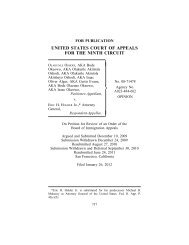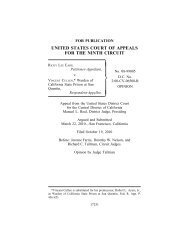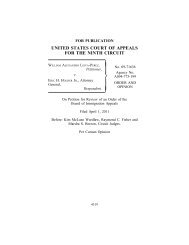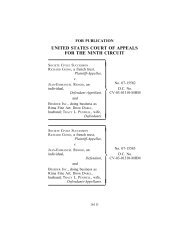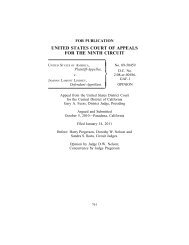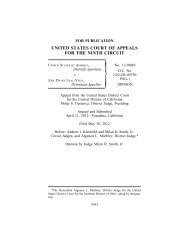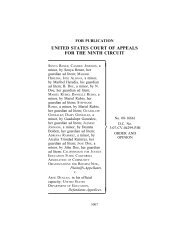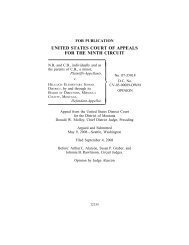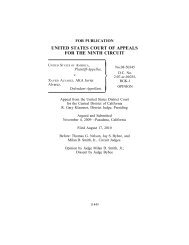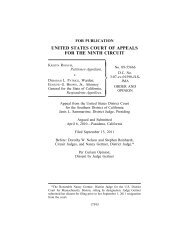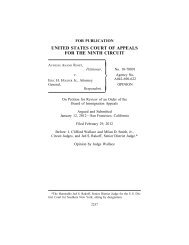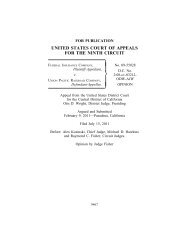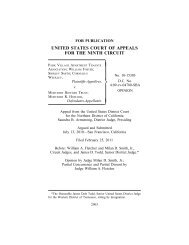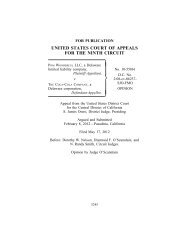UNITED STATES COURT OF APPEALS FOR THE NINTH CIRCUIT
UNITED STATES COURT OF APPEALS FOR THE NINTH CIRCUIT
UNITED STATES COURT OF APPEALS FOR THE NINTH CIRCUIT
Create successful ePaper yourself
Turn your PDF publications into a flip-book with our unique Google optimized e-Paper software.
9774 PAYNE v. PENINSULA SCHOOL DISTRICT<br />
IDEA remedies have been effected. Rather, § 1415(l) simply<br />
and broadly states that exhaustion is required if a plaintiff<br />
seeks relief that is “also available” under the IDEA. The<br />
IDEA requires public schools to provide disabled students<br />
with a “free appropriate public education.” A “free appropriate<br />
public education” includes not just “an appropriate preschool,<br />
elementary school, or secondary school education,”<br />
but also “related services” which include counseling and psychological<br />
services. See 20 USC § 1401(26). Thus, if a disabled<br />
student brings suit seeking monetary damages to<br />
compensate him for his academic regression or psychological<br />
injuries which he claims persist after the completion of a<br />
school district’s claimed wrongful act or omission, relief for<br />
those injuries is “also available” in kind under the IDEA,<br />
because the “related services” provided under the IDEA—<br />
academic services, psychological counseling and therapy—<br />
may cure, alleviate, or mitigate such injuries. In such a case,<br />
the plain text of § 1415(l) requires a plaintiff to exhaust the<br />
IDEA’s administrative procedures which may lead to the provision<br />
of curative or palliative “related services” before filing<br />
a civil suit.<br />
The majority’s skepticism that the “IDEA actually authorizes<br />
relief designed to correct the effects of misconduct by<br />
the school” is misplaced. Maj. Op. at 9760-61. The majority<br />
notes that the IDEA defines “related services” as services<br />
which “may be required to assist a child with a disability to<br />
benefit from special education” id. (quoting 20 U.S.C.<br />
§ 1401(26)(A)), and posits that the IDEA does not require<br />
schools to alleviate academic and psychological damage to a<br />
child which is caused by the school. Id. But this reading of the<br />
IDEA makes little sense. The statute plainly holds that if a<br />
child requires “related services” to benefit from special education,<br />
those services must be provided. Nothing in the statute<br />
requires any inquiry as to why those services are required.<br />
Thus, if a child suffers from crippling anxiety at school, and<br />
that anxiety must be alleviated before he can learn (or, in the<br />
words of the statute, “benefit from special education”), the



